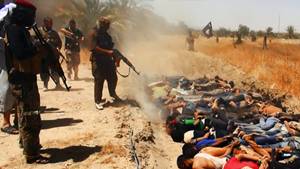Economic impact of global conflicts crosses 14.3% of world GDP
22 Jun 2015
Peacefulness in Europe has reached an historic high while the Middle East is spiralling into deepening violence according to figures outlined in the 2015 Global Peace Index, revealed at King's College London by the Institute for Economics and Peace.
The latest Global Peace Index reveals an increasingly divided world: many countries achieve historic levels of peace, while strife-torn nations continue to degrade into violence - Iceland tops the ranks as the most peaceful country in the world and Syria is the least peaceful.
The complex and dynamic fabric of peace around the world is explored in detail in the 2015 Peace Index report.
The report covers eight year trends in peace, calculates the economic impact of violence, and provides an innovative analysis of positive peace, describing its relationship to development and other significant and positive societal outcomes.
Violence impact
The impact of violence on the global economy reached $14.3 trillion or 13.4 per cent of global GDP in the last year, equivalent to the combined economies of Brazil, Canada, France, Germany, Spain and the UK.
Almost 1 per cent of the world's population is now refugee or internally displaced (IDP), the highest level since 1945, and numbers are expected to increase.
Europe remained the most peaceful geographical region in the world, securing the top three positions in the GPI. Its peacefulness has improved every year for the past four years.
Iceland ranks first. Meanwhile, Greece was the region's greatest improver, jumping 22 places in the global rankings as it experienced lower violent crime and political terror. The UK, a major player in Afghanistan, rose eight places in the rankings as a result of its exit from the Afghan mission.
Many OECD countries reached historically high levels of peace, boosted by reductions in their homicide rates, levels of military expenditure and military engagements.
Despite global peace levels remaining stable over the last year, however, the world is less peaceful today than it was in 2008. Over the last year, 81 countries have become more peaceful, while 78 have become more violent.
Global terrorism increased with the number of people killed in attacks reaching an estimated 20,000 in 2014. The data also indicates an escalation in the intensity of armed conflict, with figures of armed conflict-related casualties nearly quadrupling from 2010 to 2014. Violence is also having a stronger impact on the global economy. Last year, the global economic impact of violence reached $13.4 trillion, equalling 13.4 per cent of world GDP
Middle East more violent
Steve Killelea, founder of the Index says, ''2014 was marked by two contradictory trends, on one hand many countries in the OECD achieved historic levels of peace while on the other, strife-torn nations, especially in the Middle East, became more violent. This is a real concern; as these conflicts become even more intractable they then spread terrorism to other states.''
He says the Middle East and North Africa had seen the most dramatic fall in peace in 8 years.
:There is some good news – most countries (116) have improved, even if only marginally. The more stable a country is, the more resilient it is to shocks –for example, Iceland and the financial crisis.'
But panelist Lieutenant-General Jonathan Peter Riley noted that, "Order is not the same thing as security' –noting examples of regimes like the Taliban – 'Very people in those situations would have been described as being 'secure'- especially minorities and women."
Breaking the cycle
Reuters correspondent Peter Apps who was moderating the panel discussion, said, "The big take-away is that we have a trend of a substantial decline in global peace - which is worrying, because it is unusual."
King's Emeritus Professor Sir Lawrence Freedman agreed, citing Steven Pinker's theory that the world violence historically declines.
Sir Lawrence noted that countries like Ukraine could be pulled into violence.
"Ukraine has declined, but it is not its fault…We have to address the geo-political factors as well," he said.
He praised Steve Killelea's work creating the Peace Index as 'an extraordinarily useful body of information' and added: 'The best indicator of future conflict is past conflict. The challenge is how we break that cycle.'
The report can be read at http://economicsandpeace.org/reports/




















